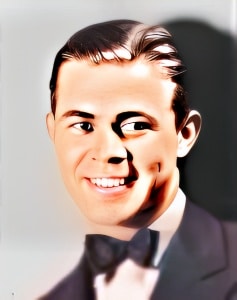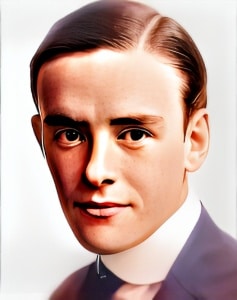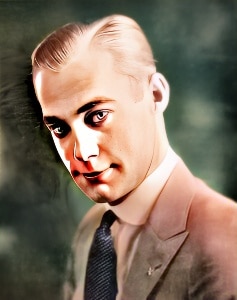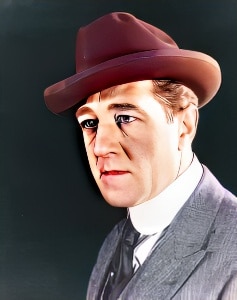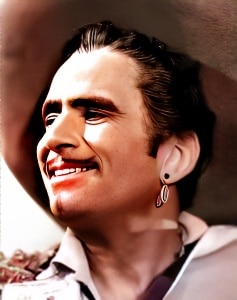 Douglas Fairbanks (1883-1939) was an American actor, screenwriter, producer, and director who played a pivotal role in the early years of American cinema.
Douglas Fairbanks (1883-1939) was an American actor, screenwriter, producer, and director who played a pivotal role in the early years of American cinema.
He is best known for his energetic and charismatic performances in silent films, particularly in swashbuckling adventure roles. Fairbanks was a founding father of Hollywood and a pioneering figure in the film industry during its formative years.
Born on May 23, 1883, in Denver, Colorado, as Douglas Elton Thomas Ullman, he later adopted the stage name Douglas Fairbanks. He began his career as a stage actor in New York City, gaining recognition for his performances in both comedies and dramas. His theatrical experience laid the foundation for his future success in the world of cinema.
Fairbanks made his screen debut in 1915 with the film “The Lamb.” However, it was his role in “ The Mark of Zorro” (1920) that catapulted him to stardom. In this iconic film, he played the dual role of Don Diego Vega and his masked alter ego, Zorro, a character that became one of his most famous portrayals. The film’s success established him as a leading actor in Hollywood and solidified his status as a swashbuckling hero.
Known for his athletic abilities, charisma, and enthusiasm, Fairbanks became one of the first true action stars of cinema. His roles often involved daring stunts, swordplay, and acrobatics, which he performed with remarkable agility and finesse. He was a true physical performer who captivated audiences with his energy and athleticism.
Some of Fairbanks’s other notable films include “ Robin Hood” (1922), “The Thief of Bagdad” (1924), and “The Three Musketeers” (1921). These films further established him as a beloved and enduring figure in the entertainment industry. His movies were characterized by a sense of adventure, heroism, and a dash of humor, which endeared him to audiences worldwide.
In addition to his acting, Douglas Fairbanks was a visionary producer and co-founder of United Artists, a pioneering film studio established in 1919, along with Mary Pickford, Charlie Chaplin, and D.W. Griffith. United Artists allowed these influential figures to have greater creative control over their projects and marked a turning point in the film industry’s business model.
Fairbanks’s contributions to the early years of American cinema extended beyond acting. He ventured into writing and directing, and his work on both sides of the camera demonstrated his versatility and influence in the industry.
His personal life was closely followed by the press, and his marriage to actress Mary Pickford in 1920 created Hollywood’s first “royal” couple, often referred to as “America’s Sweethearts.” Their fame and influence extended beyond their film careers, making them cultural icons of their time.
Tragically, Douglas Fairbanks’s life was cut short when he passed away on December 12, 1939, at the age of 56. His contributions to the film industry, particularly during the silent film era, are remembered as a vital part of Hollywood’s history. Fairbanks’s legacy as a charismatic action hero and a pioneering force in the early film business continues to influence the world of cinema, and his films remain a testament to his enduring appeal and the timeless nature of his work.
Loading live eBay listings...

